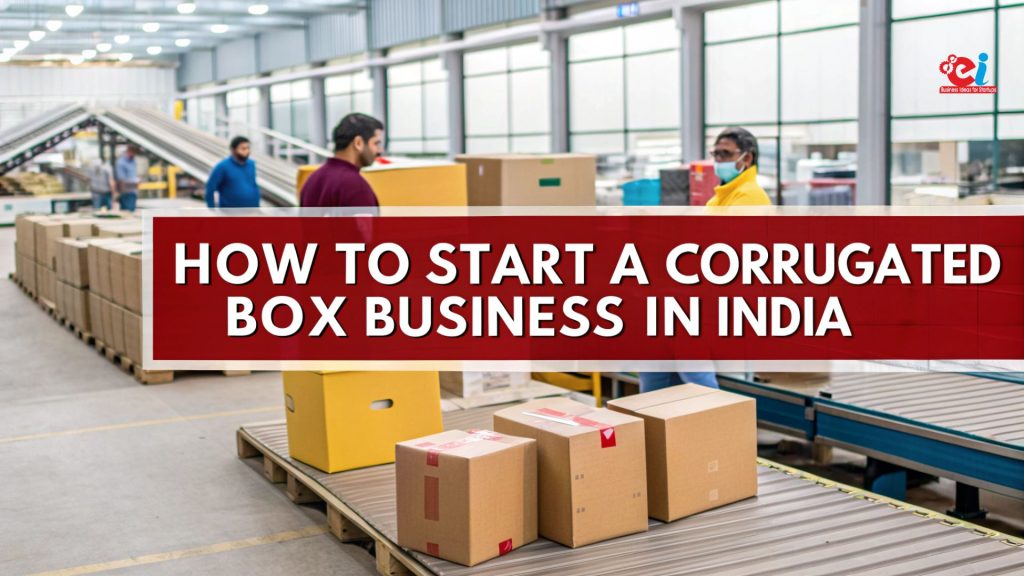Introduction to the Lithium-ion Battery Business
In an era where clean energy and sustainable transport are dominating global discourse, the Lithium-ion battery has emerged as a central element of the green revolution. From electric vehicles (EVs) to solar energy storage systems and consumer electronics, the demand for reliable, high-density batteries is soaring. Entrepreneurs and investors are tapping into this explosive market, finding immense potential in launching a Lithium-ion battery pack business.
Why Start a Lithium-ion Battery Pack Business?
The global shift towards renewable energy and electrification has opened up a multi-billion-dollar market. According to industry projections, the Lithium-ion battery market is expected to surpass $250 billion by 2030. This rapid growth is fueled by:
- Electric Vehicle (EV) boom
- Grid-scale renewable energy storage
- Portable electronics and mobile computing
- Industrial applications in robotics, drones, and tools
By entering the Lithium-ion battery pack business, you align with future-ready technologies while contributing to sustainable development.
Understanding Lithium-ion Battery Packs
A Lithium-ion battery pack is a combination of several individual lithium-ion cells configured and managed with Battery Management Systems (BMS). These packs are designed to provide high energy density, lightweight form factor, longer lifespan, and rapid charging—key requirements for today’s electronic and automotive needs.
The typical components of a battery pack include:
- Cell Module: Individual lithium-ion cells arranged in a specific series-parallel configuration
- Battery Management System (BMS): Circuitry that monitors and controls charge-discharge functions
- Cooling System: Keeps the temperature within safe limits
- Packaging: Ensures safety and protection during use and transport
Market Analysis and Target Sectors
Before setting up a business, it’s crucial to analyze demand across sectors:
- Automotive (EV): EVs require large-capacity battery packs, making this the largest consumer market.
- Renewable Energy Storage: Residential and commercial solar setups increasingly rely on Lithium-ion batteries.
- Telecom and Data Centers: Require uninterrupted power, opening a niche for high-performance battery packs.
- Consumer Electronics: From smartphones to laptops, there’s consistent demand for compact, long-lasting batteries.
- Industrial Equipment: Power tools, drones, AGVs, and robotics use tailored Lithium-ion battery packs.
Step-by-Step Guide to Start a Lithium-ion Battery Pack Business
1. Conduct a Detailed Feasibility Study
Before making an investment, conduct a thorough feasibility report covering:
- Market demand and future trends
- Initial capital requirement
- Supply chain logistics
- Regulatory approvals and compliance
- Technical know-how
Use insights from this study to craft a viable business plan.
2. Legal Registration and Certifications
To operate legally and ensure product trust, secure the following:
- Company registration under relevant local or national laws
- BIS certification (India), UL/CE marks (international)
- Pollution Control Board approvals
- Fire and Safety compliance
- Patent and intellectual property for proprietary designs (if applicable)
3. Investment and Financial Planning
Starting a Lithium-ion battery pack manufacturing unit can be capital-intensive. Here’s a breakdown:
- Small-scale setup: ?25–50 Lakhs (for manual/semi-automatic operations)
- Medium to large-scale: ?1–5 Crores (fully automated line with testing labs)
Funds should cover machinery, raw materials, skilled labor, licenses, branding, and marketing.
4. Setup of Manufacturing Facility
Location selection should ensure proximity to raw material suppliers, ease of transport, and regulatory compliance. Key facility zones:
- Assembly Line: Cell arrangement, welding, and pack formation
- Testing Lab: Cycle testing, thermal management validation
- R&D Section: For design innovations and performance improvement
- Packaging Unit: Safe and standardized packing for transport
Procure high-quality machinery for cell sorting, spot welding, BMS integration, and laser cutting.
5. Sourcing Raw Materials and Components
Your supply chain should be reliable and quality-driven. Essential components include:
- Lithium-ion cells (18650, 21700, pouch cells, prismatic cells)
- BMS circuits
- Nickel strips and busbars
- Welding and housing materials
- Cooling foams or phase-change materials
Tie-ups with international cell manufacturers (e.g., Samsung SDI, LG Chem, CATL) can ensure consistent supply.
6. Designing the Battery Pack
Product differentiation comes from how you design the pack. Focus on:
- Custom voltage/current requirements
- Thermal management efficiency
- Modular and scalable design
- Integrated IoT monitoring systems
Offer OEM/ODM solutions for startups and EV companies to gain market entry.
7. Battery Testing and Quality Assurance
Safety and performance define your brand. Invest in quality testing protocols:
- Voltage and capacity tests
- Short-circuit and overcharge protection
- Thermal runaway prevention
- Life cycle and deep discharge testing
Use advanced software to log test data and integrate it into the product’s warranty system.
8. Sales and Marketing Strategy
A strong go-to-market strategy is key to success in the Lithium-ion battery pack business:
- B2B channels: Partner with EV startups, solar EPCs, and OEMs
- B2C platforms: Sell via e-commerce or through your own branded website
- Government tenders: Bid for energy storage and rural electrification projects
- Exhibitions & trade shows: Present your tech at expos to attract industrial clients
Utilize digital marketing tools such as SEO, PPC ads, LinkedIn campaigns, and email newsletters.
9. After-Sales Support and Recycling
Provide long-term support through:
- Warranty and repair services
- Remote monitoring tools
- AMC contracts for bulk users
- Recycling and disposal programs for end-of-life batteries
Establish your reputation by promoting sustainable Lithium-ion battery solutions.
Challenges in the Lithium-ion Battery Industry
- High competition and price sensitivity
- Dependency on imported cells (especially in India)
- Regulatory complexity and certification delays
- Risk of fire or thermal runaway if poorly designed
- Environmental concerns around mining and disposal
Overcome these challenges with innovation, reliable sourcing, and world-class engineering.
Future Opportunities in the Lithium-ion Battery Sector
The future holds immense promise for businesses in this space:
- Solid-state batteries: Emerging tech with even better energy density
- Second-life battery reuse: Repurposing EV batteries for solar storage
- Battery swapping stations: Especially for 2-wheeler and 3-wheeler segments
- Domestic cell manufacturing: Under PLI (Production Linked Incentives) in India
- Export market: Growing demand in Africa, Southeast Asia, and Latin America
Innovate continually and stay informed about market trends and government policies.
Conclusion
Starting a Lithium-ion battery pack business today positions you at the forefront of the energy revolution. By combining advanced technology, a solid manufacturing setup, and strategic marketing, your business can tap into one of the most lucrative and future-proof industries. With the right execution, your venture can contribute significantly to global electrification and sustainability goals.
Lithium-ion batteries are more than just a trend—they’re the power source of the future.
Visit the page Select and Choose the Right Business Startup for You for sorting out the questions arising in your mind before starting any business and know which startup you can plan.
We, at NPCS, endeavor to make business selection a simple and convenient step for any entrepreneur/startup. Our expert team, by capitalizing on its dexterity and decade’s long experience in the field, has created a list of profitable ventures for entrepreneurs who wish to diversify or venture. The list so mentioned is updated regularly to give you a regular dose of new emerging opportunities.






